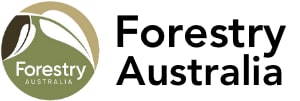
State Government plantation land going to waste, Australia’s largest carbon offsets project goes begging, while endangered Cockatoos suffer.
MEDIA RELEASE
10 February 2021
State Government plantation land going to waste, Australia’s largest carbon offsets project goes begging, while endangered Cockatoos suffer.
The Institute of Foresters of Australia and Australian Forest Growers (IFA/AFG) is calling for the Western Australian government to take urgent action to allow the replanting of pine in the Gnangara/Pinjar/Yanchep region.
Chair of the IFA/AFG’s WA Division, Brad Barr said the clearfelling of maritime pine trees in the plantations north of Perth without replanting made little sense.
The trees are being liquidated because they purportedly use too much rainwater which is needed to replenish the Gnangara ground water aquifers for human use.
“This scenario seems irrational and lacks consideration of sensible forest management” said Mr Barr.
“Research has shown that, provided the pine trees are regularly thinned, the amount of water they use is little different to that used by the surrounding natural vegetation.
“The government is currently seeking proposals from private sources to expand WA’s pine plantation estate by 50,000 hectares over 10 years, but at the same time is ignoring the 22,000-hectare estate right on the doorstep of the second biggest pine timber factory in the State (Wesbeam) to which the government is committed to supply logs under a State Agreement Act.
“The pine trees also provide a valuable food source and roosts for the endangered Carnaby’s cockatoo, which have become increasingly dependent on this pine resource since it was first established in the early 20th century. The IFA/AFG is one among many groups concerned that once the last of the pines are harvested, without replanting, the future of this bird will be compromised.
“The IFA/AFG considers the multiple benefits of plantations have been overlooked, and the impact upon water tables over-emphasised to the detriment of other forest and land values. This area is just 10% of the total Gnangara groundwater area of 220,000 hectares.
“The ex-plantation is now mostly unmanaged land, going to waste, and has been fallow for so long that planted pine trees will be eligible for generating Australian Carbon Credit Units (ACCUs). If 10,000 hectares were replanted, the IFA/AFG estimates that over 2 million ACCUs could be generated over time, and the revenue from carbon credits alone may cover the costs of reforestation.
“These ACCUs could be used to offset emissions from water desalination or other large development projects and would represent the single largest carbon sequestration project in Australia. “The IFA/AFG is calling for the WA government to base its management of the shrinking Gnangara water resource on science and take urgent action to allow the replanting of pine for the benefit of our renewable timber industry and our cockatoos.”
Media contact:
David Abbott – 0400 446 736
John Clarke – 0447 181 953
Font PR

